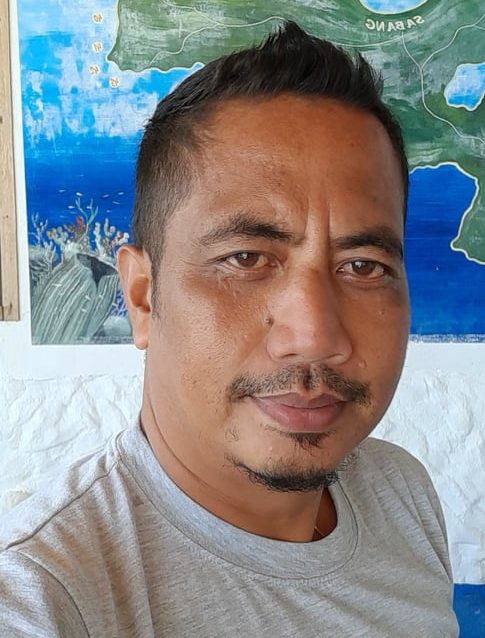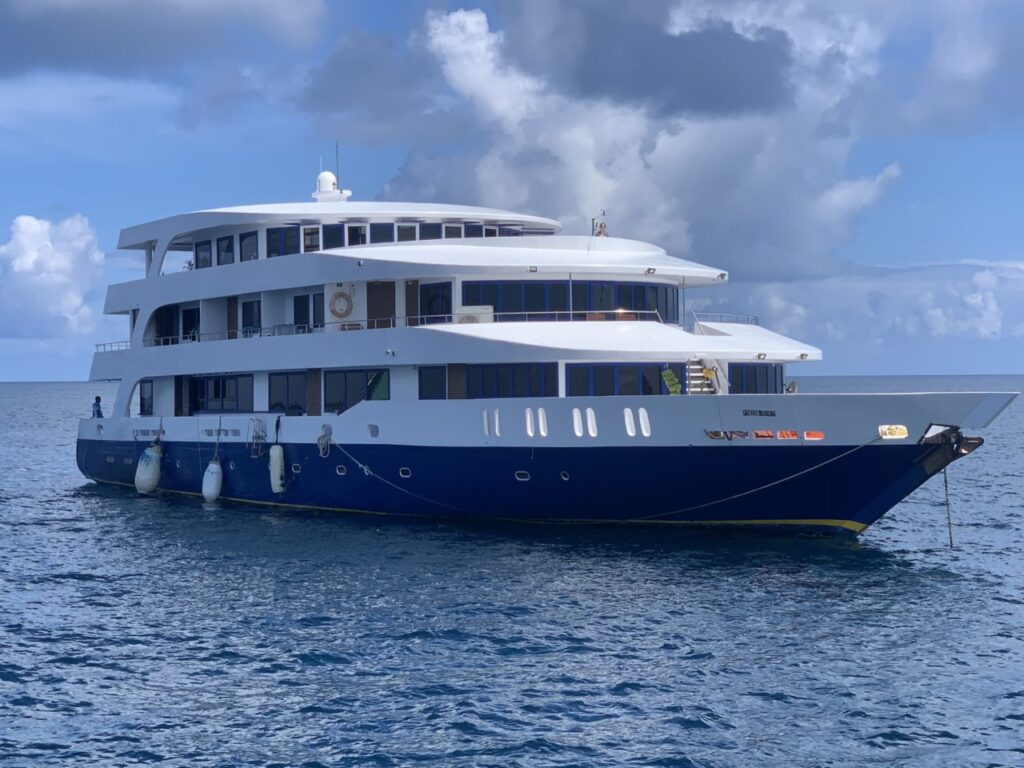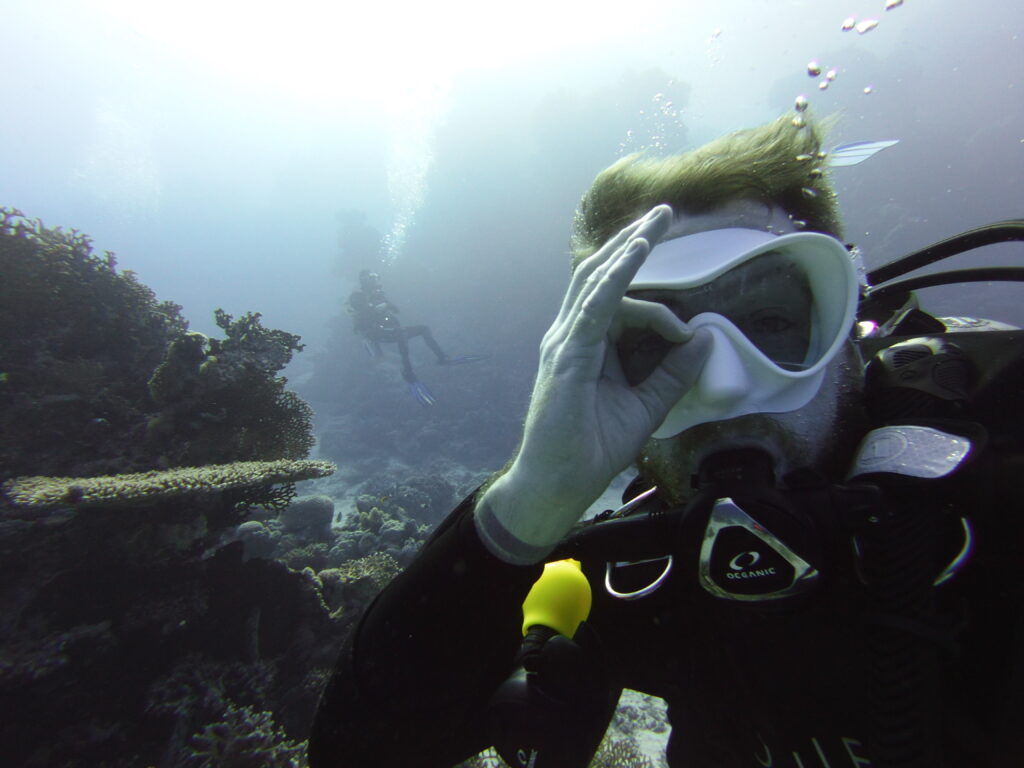In this issue of Scuba Legends, I interview Rex M Medina who is the dive shop manager at Scandi Divers Resort in Puerto Galera, the Philippines.
Rex was born on Verde Island and moved to Puerto Galera at a young age and there, he pursued a career in scuba diving and even taught me the second half of my Divemaster Course during 2020’s Covid-19 Pandemic.
Read on to find out Rex’s responses to some of the biggest Diving Squad questions of all time….

Why do you scuba dive?
First of all, it’s my job. I am lucky to say that I get paid for diving – it’s my source of income a lot of fun as well! Getting to teach other people such a cool activity is extremely rewarding.
What’s one of the best things you’ve seen on a dive?
For me, it’s a thresher shark. They are extremely graceful swimmers, with their long tails and when you look at their head you see a very calm and peaceful animal. It’s amazing to share a moment with them underwater.
Where is one of your favourite scuba diving locations and why?
For me, it’s still Puerto Galera. The things you see here will be so different to elsewhere, even within other parts of the Philippines. You’ll find beautiful nudibranch as well as many other cool and quirky species like frogfish, stonefish, scorpionfish, batfish, turtles, octopus and nudibranch that live here year round.
There are many incredible reefs of both hard and soft coral and at certain times of year you can get luck and also see creatures like thresher shark, manta ray and white tip shark.
What advice would you give someone who wanted to improve their diving?
First of all, the most important thing to get perfected as a diver is buoyancy control – you can take the peak performance buoyancy course to master your buoyancy.
The peak performance buoyancy is usually taken during your advanced open water course, during which you’ll gain more diving experience in a range of different situations.
However you can also take the peak buoyancy performance training on it’s own, within a single day, so it’s easy to get under your (dive) belt!
Whats the funniest or craziest thing that’s happened to you during a dive?
I would probably have to say when I experienced my first real oxygen narcosis, which was when I went down to sixty meters deep.
At the beginning, I saw five large batfish but then after looking at them for a minute, they fused together and became an extremely colourful white and orange cow….that’s when I realised “ah, somethings wrong”.
What with global warming, have you noticed marine communities changing over the past few decades?
Yes. Even here in Puerto Galera, there are some places where the coral has sadly been bleached, which results in a loss of many of the fish and other animals that also depend on the reef – I suspect they go deeper.
Luckily though, in Puerto Galera the marine environment has a lot of special protection and the relatively few areas of reef that had been bleached are now recovering. We’ve also get some coral nurseries on the go!
What advice would you give to someone to help preserve the ocean for future generations to come?
Don’t throw any rubbish in the sea and try to avoid plastic packaging wherever you can! When you do have plastic packaging – always, always recycle it, don’t just throw it in the trash or it finds it’s way into the sea where it has a devastating effect on the marine ecosystem.
Also, when you dive, make sure to avoid having any physical contact with the coral as it is extremely fragile and can easily break, yet takes an extremely long time to grow back.
Don’t touch or interfere with anything underwater (unless it’s rubbish, in which case take it out – unless it’s so old something has now made it’s home there!). Don’t throw anchors anywhere there might be coral and avoid using suncream where you can, because it can cause coral bleaching.
If you could be any marine animal for a day, what would you be?
I think I would be a nudibranch – any kind is fine – because they are so small and also very colourful which is to indicate that they are extremely poisonous. So that means that if I’m a nudibranch, I’ll probably be safe for the day as there’s very few things that want to eat me!
Noone is even going to want to come close enough to touch me so I’ll have my personal safe bubble remain in tact – I’m small but powerful. Maybe the next day, I’ll come back as an octopus or cuttlefish and camouflage myself.
Is there anything else you’d like to say, before we wrap this interview up?!
Whenever you dive, dive safely and responsibility. Respect the nature around you, don’t touch anything – and always keep working on improving your scuba skills.
Related Reads:
- Becoming a Divemaster in Puerto Galera during 2020’s Covid-19 Pandemic
- The Official Guide to Puerto Galera Diving & Travel
- Gary Kulisek Podcast
- Luke Spence Interview`
- Puerto Galera Diving Video

